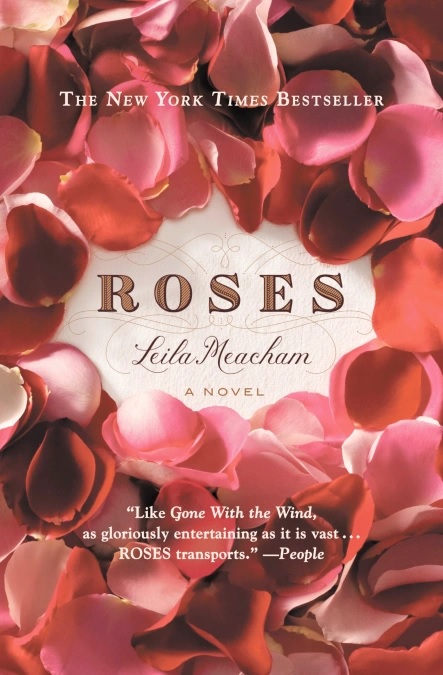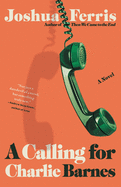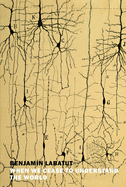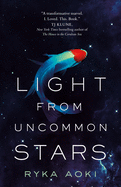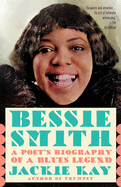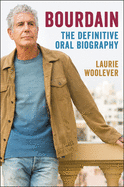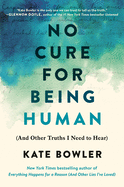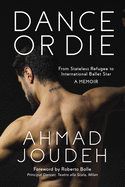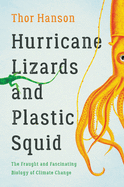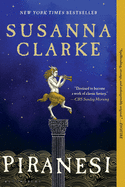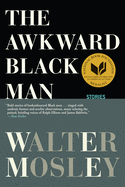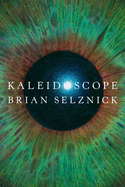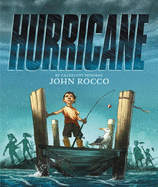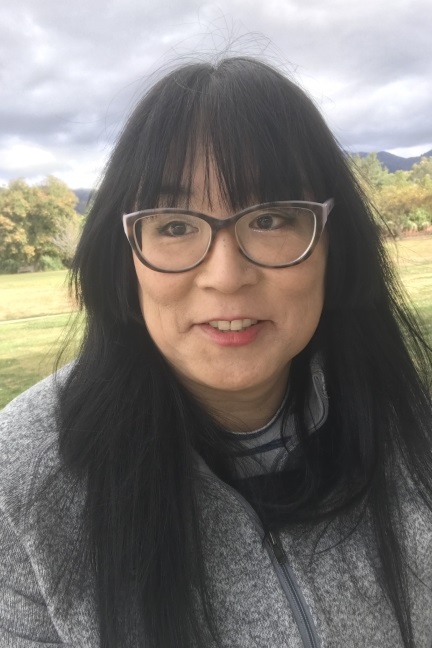 Ryka Aoki is a poet, composer, teacher and novelist whose books include He Mele a Hilo and two Lambda Award finalists, Seasonal Velocities and Why Dust Shall Never Settle Upon this Soul. Aoki's work has appeared or been recognized in publications including Vogue, Elle, Bustle, Autostraddle, PopSugar, and Buzzfeed. Her poetry was featured at the Smithsonian Asian Pacific American Center, and she was honored by the California State Senate for "extraordinary commitment to the visibility and well-being of Transgender people." Her novel Light from Uncommon Stars (Tor Books, $25.99, reviewed below) is out now.
Ryka Aoki is a poet, composer, teacher and novelist whose books include He Mele a Hilo and two Lambda Award finalists, Seasonal Velocities and Why Dust Shall Never Settle Upon this Soul. Aoki's work has appeared or been recognized in publications including Vogue, Elle, Bustle, Autostraddle, PopSugar, and Buzzfeed. Her poetry was featured at the Smithsonian Asian Pacific American Center, and she was honored by the California State Senate for "extraordinary commitment to the visibility and well-being of Transgender people." Her novel Light from Uncommon Stars (Tor Books, $25.99, reviewed below) is out now.
This novel includes a runaway teen violinist, donut-making refugee extraterrestrials, demons, classical music and great food. How did you balance it all?
This book does travel, doesn't it? In my life, maybe I inhabit a lot of different identities. I wanted to create a story that recognized so many of my dreams and aspirations.
To be honest, all of us are mashups, aren't we? Even our most straightforward stories can be idiosyncratic when we break them down. Think about the original Star Wars. There you have mind control, children growing up without parents, imprisonment, abuse, green milk, desert nomads.
When the story is familiar, we may not notice all the little contradictions. In the unfamiliar, we start noticing things. We notice the rattle of the dinner plates, the shape of the door hinges. We take an extra-long time to smell our breakfast, to look at the potato chips at the supermarket.
We notice there's a violin, even though it may have been playing to us all along.
Your protagonist Katrina struggles with feeling she can't be loved or accepted.
Self-compassion is difficult, especially when alone. I feel that self-compassion means accepting your true self. When you are alone, your true self can be a terrifying thing to contemplate, let alone accept. When you find a community, your friends and found family can see things in you that perhaps you're unable to see in yourself. By holding their images inside of you, even when you are facing yourself alone, you're never alone.
Katrina's teacher, "Queen of Hell" Shizuka, can't imagine a bloodless way to save her own soul. How do you think souls are saved?
I have spent so much time learning how to accept myself, so for me, saving a soul in peril means reflecting its beauty back onto itself. They say familiarity breeds contempt. What we're most familiar with is ourselves. Perhaps souls in peril are those that have grown too contemptuous of themselves. Friends, family, chosen family--if they let these souls see through that contempt and perceive their value and their radiance, then these souls might be on the way to being saved.
Why was it important to you to include sex work as an aspect of Katrina's story?
I included sex work because it is very important to Katrina. She survived with it. She financed her violin with it. Also, Katrina uses her experience to nourish her music. Be it sex work or any other performance work, you are being paid to deliver a pleasurable aesthetic experience.
Despite preconceptions, sex work has been validating to Katrina. In a world that has made her feel freakish and ugly, to be wanted and paid for is affirming. People can call you an abomination all they want by day, but if they're giving you good hard cash to see you naked at night, that says something, doesn't it?
When one has difficulty taking compliments, transactional space can be the best way to process praise. With sex work, you know what the client wants, what they will say. Yes, they'll call you beautiful and all of that, but if it makes you uncomfortable, you can just call it business and unpack it later.
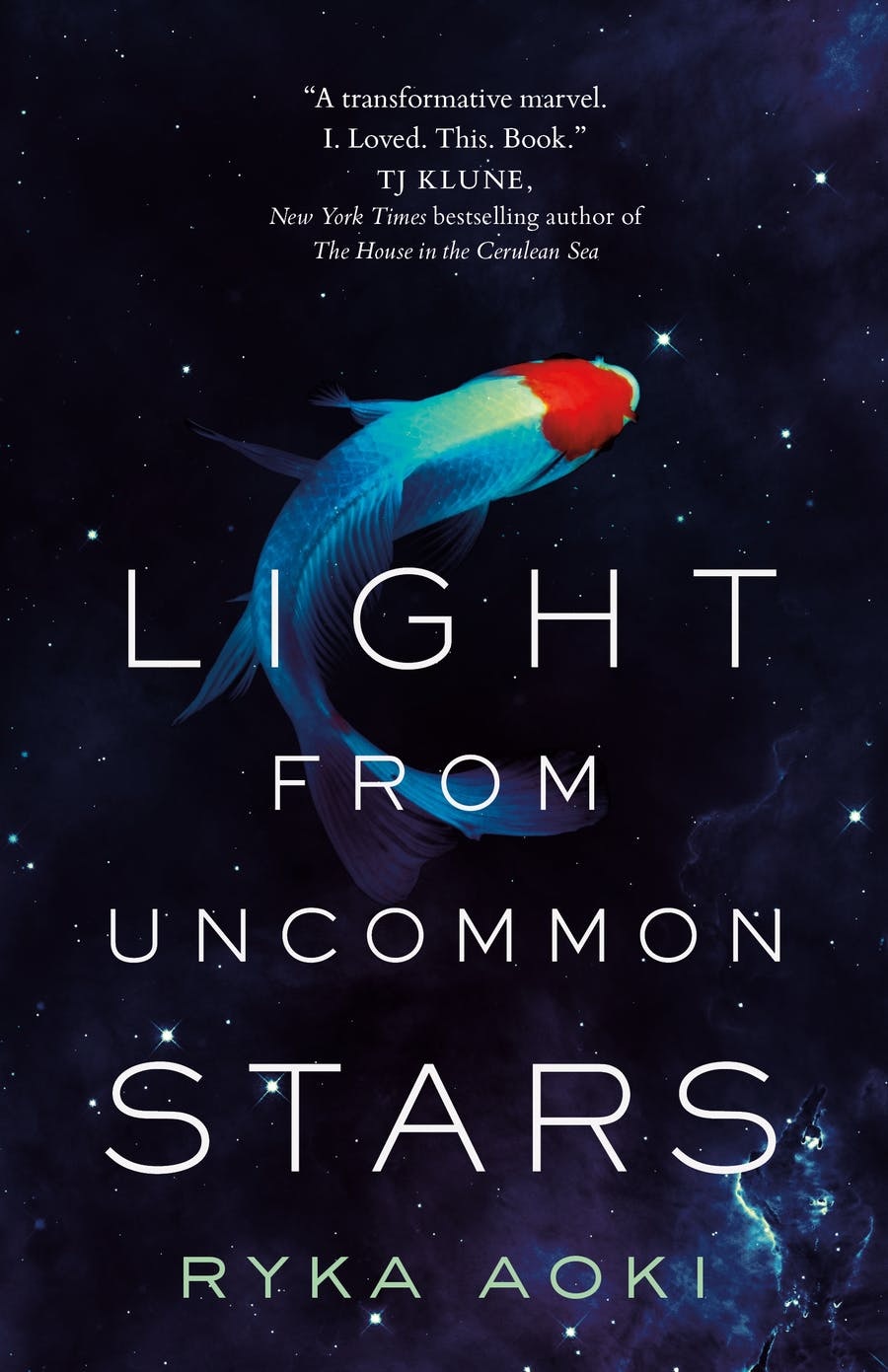 Your narrative pays plentiful homage to that unrivaled human invention, the hole-in-the-wall restaurant. What do local restaurants represent to you?
Your narrative pays plentiful homage to that unrivaled human invention, the hole-in-the-wall restaurant. What do local restaurants represent to you?
Home. Wherever you are, when you know the local restaurants and holes-in-the-wall, you know you're home. Somebody from New York City returns and grabs a slice of pizza, and they know they are home.
In queer communities, and especially queer communities of color, there's even more significance to these places. Often your favorite childhood memories are steeped in that bowl of noodles that's been served in that neighborhood in that restaurant where your auntie's mother-in-law has worked forever. Which means, if you're disowned by your family, and word gets around, eating in that place as your queer and/or trans self can become, well, difficult.
I've seen Asian-American queers, especially the older ones, leave their homes and hometowns to be themselves. There's this sadness, because they often can recall the last time they were ever with their families and those noodles in that hole-in-the-wall. Sure, they might have wonderful chosen family, but often that chosen family comes from different cultures and different backgrounds. So, for the tastes of home, that hunger remains.
You gave your characters a dilemma involving an AI. Why do some people resist the idea that an AI can be a lifeform?
Being transgender, I understand being dehumanized and invalidated. Some would call my gender artificial, a product of science gone haywire. Some might want to erase my entire transgender identity and reset me to remove the "error." With artificial life forms, I can guess how polarizing the discussion would be. Perhaps there's a difference between those who feel humanity is limitless versus those who think that humanity is more of a zero-sum game. If you think that accepting an artificial life form as human or self-aware somehow diminishes your own status, then of course you're going to resist that.
If you believe there's plenty of humanity to go around, that recognizing someone's identity poses no threat to your own, it's far easier to be generous and even supportive and welcoming. Self-awareness is a big thing, and the more souls exploring its expanse, regardless of how those souls were made, the better we all are for it.
What should we expect from your next project?
It takes place in the same world as Light from Uncommon Stars but further explores how our interconnected world hybridizes traditions and cultures, art and songs and even worship.
People in the Midwest watch a blockbuster anime. Suddenly, gamers and cosplayers thousands of miles from Kyoto are invoking Buddhist and Shinto deities. At what point does it stop becoming play? In a world of Crunchyroll and Google Translate and global (mis)communication and (criss)crossed cultures, what happens to our theologies? And by extrapolation, what happens to our gods? And when aliens get involved, there are bound to be repercussions....
What is the best donut in the universe?
The best donut, in my universe anyway, will be the one I eat years and years from now, when I am spending an afternoon with my friends, my chosen family. Maybe it's a picnic at the beach and someone's grilling teriyaki skewers, and there's macaroni potato salad and someone has brought me an iced coffee and I grab that best donut, take a bite, look up at the swirling clouds and recall the adventures that I've been on, and say yeah, this is a greatest donut ever.
But until then? A crème-filled malasada from Tex Drive-In in Honoka'a, on the Big Island of Hawai'i. --Jaclyn Fulwood
Ryka Aoki: A Violin Playing All Along
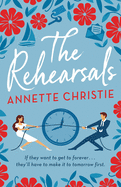 Annette Christie's lighthearted yet insightful debut, The Rehearsals (Little, Brown, $28), gives a Groundhog Day twist to longtime couple Tom and Megan's wedding weekend (with their complicated families) on a beautiful island. Something goes wrong when both the bride and groom keep waking up stuck in the same day. Christie uses the time-loop plot device to dig into big questions about Megan and Tom's relationship: long-simmering resentments, the choices they've each made, and whether they really want to get married after all.
Annette Christie's lighthearted yet insightful debut, The Rehearsals (Little, Brown, $28), gives a Groundhog Day twist to longtime couple Tom and Megan's wedding weekend (with their complicated families) on a beautiful island. Something goes wrong when both the bride and groom keep waking up stuck in the same day. Christie uses the time-loop plot device to dig into big questions about Megan and Tom's relationship: long-simmering resentments, the choices they've each made, and whether they really want to get married after all.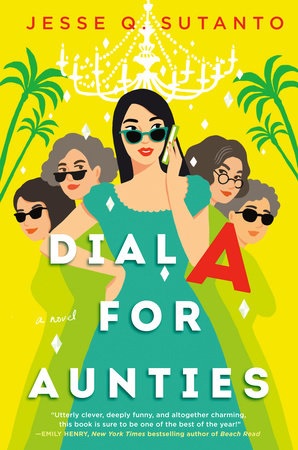 Singaporean-Indonesian author Jesse Q. Sutanto draws on her own family for inspiration in her hilarious adult fiction debut, Dial A for Aunties (Berkley, $16). Photographer Meddy Chan, her mother and three highly capable but argumentative aunties have scored a lucrative wedding weekend--a boon for their family's events company. But when Meddy (accidentally!) offs her blind date the night before, all five women get caught up in a hilarious game of trying to hide the body while keeping the wedding party happy and oblivious. Sutanto's narrative mixes slapstick humor, a sweet second-chance love story and family dynamics even stickier than wedding-cake icing.
Singaporean-Indonesian author Jesse Q. Sutanto draws on her own family for inspiration in her hilarious adult fiction debut, Dial A for Aunties (Berkley, $16). Photographer Meddy Chan, her mother and three highly capable but argumentative aunties have scored a lucrative wedding weekend--a boon for their family's events company. But when Meddy (accidentally!) offs her blind date the night before, all five women get caught up in a hilarious game of trying to hide the body while keeping the wedding party happy and oblivious. Sutanto's narrative mixes slapstick humor, a sweet second-chance love story and family dynamics even stickier than wedding-cake icing.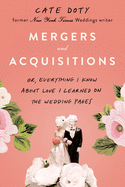 Cate Doty spent several years on the wedding desk at the New York Times, interviewing the big players in society weddings. Doty's wry, warmhearted memoir Mergers and Acquisitions (Putnam, $27) weaves together her time reporting on high-end nuptials with her own lifelong wedding obsession, a few romances that didn't work out--and one that just might. Doty's keen eye for detail and the probing questions she asks about love and its trappings make her memoir a thought-provoking delight. --Katie Noah Gibson, blogger at Cakes, Tea and Dreams
Cate Doty spent several years on the wedding desk at the New York Times, interviewing the big players in society weddings. Doty's wry, warmhearted memoir Mergers and Acquisitions (Putnam, $27) weaves together her time reporting on high-end nuptials with her own lifelong wedding obsession, a few romances that didn't work out--and one that just might. Doty's keen eye for detail and the probing questions she asks about love and its trappings make her memoir a thought-provoking delight. --Katie Noah Gibson, blogger at Cakes, Tea and Dreams



 Your narrative pays plentiful homage to that unrivaled human invention, the hole-in-the-wall restaurant. What do local restaurants represent to you?
Your narrative pays plentiful homage to that unrivaled human invention, the hole-in-the-wall restaurant. What do local restaurants represent to you?